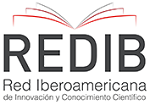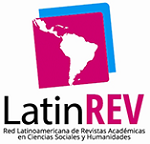Análisis de la producción científica en educación STEAM: una revisión desde la base de datos web of science
DOI:
https://doi.org/10.15649/2346030X.4414Palabras clave:
análisis bibliométrico, tendencias investigativas alrededor de STEAM, enfoque educativo STEAM, base de datos WoSResumen
Esta revisión bibliométrica de 223 artículos sobre el enfoque educativo STEAM, extraídos de la base de datos WoS, muestra comportamientos diversos a lo largo de la ventana de observación, con lo que demuestra que el enfoque educativo STEAM ha evolucionado en respuesta a la creciente demanda de habilidades interdisciplinarias y creativas, especialmente impulsado por la pandemia de COVID-19, que reforzó la necesidad de estrategias pedagógicas innovadoras. Se identifican como principales hallazgos el predominio de la investigación empírica por encima de cualquier otra opción de publicación académica. A nivel de autores se resaltan los aportes de Lavicza y Quigley, y las investigaciones han despertado el interés en todos los continentes, pero se destaca Estados Unidos y España como los pioneros en las publicaciones en esta base de datos alrededor del enfoque educativo STEAM. Las principales tendencias investigativas se concentran alrededor de un conjunto de áreas que reflejan un interés creciente en aplicar STEAM para desarrollar habilidades críticas y técnicas en los estudiantes, donde las metodologías y tecnologías emergentes, junto con la creatividad y la integración transdisciplinar se convierten en los pilares sobre los cuales se garantiza el éxito de este enfoque educativo en diversos contextos educativos.
Referencias
O. Contreras, «Educación STEAM: Integración Transdisciplinaria curricular en la enseñanza de las matemáticas, ciencias, tecnología y arte en la educación media,» Universidad Pedagógigca Experimental Libertador, Rubio, 2021.
A. P. Segovia, C. E. Mejía, S. R. Figueroa y S. D. Encalada, «Inferencia de un Enfoque Educativo Steam para el Desarrollo de un Pensamiento Crítico en Estudiantes de Básica Superior,» Ciencia Latina Revista Científica Multidisciplinar,, vol. 7, nº 6, pp. 6451-6475, 2024.
World Economic Forum, «he Future of Jobs Report 2020,» 20 Octubre 2020. [En línea]. Available: https://es.weforum.org/publications/the-future-of-jobs-report-2020/.
Organización para la Cooperación y el Desarrollo Económico, «An OECD Learning Framework 2030,» de The Future of Education and Labor, Cham, Springer, 2019, pp. 23-25.
Organización de las Naciones Unidas para la Educación, la Ciencia y la Cultura, The right to education in the 21st century: background paper for the international seminar on the evolving right to education, UNESCO, 2021.
National Science Foundation , «When science meets art: 6 NSF research projects that turn STEM into STEAM,» Higher Education in Science and Engineering, 2020. [En línea]. Available: https://ncses.nsf.gov/pubs/nsb20197/.
V. T. Díaz, I. M. Salazar y R. López, «Steam: Una breve conceptualización de una metodología orientada al desarrollo de competencias del siglo XXI,» Revista EDUCARE - UPEL-IPB - Segunda Nueva Etapa 2.0, vol. 27, nº 2, pp. 73-91, 2023.
C. Latorre-Cosculluela, S. Latorre-Cosculluela, A. Rodríguez-Martínez y M. Liesa-Orús, «Design Thinking: creatividad y pensamiento crítico en la universidad,» Revista Electrónica de Investigación Educativa, vol. 22, nº e28, pp. 1-13, 2020.
D. Herro y C. Quigley, «STEAM Enacted: A Case Study of a Middle School Teacher Implementing STEAM Instructional Practices,» Journal of Computers in Mathematics and Science Teaching, vol. 35, nº 4, pp. 319-342, 2016.
S. Z. Beers, «21st Century Skills: Preparing,» 2011. [En línea]. Available: http://cosee.umaine.edu/files/coseeos/21st_century_skills.pdf.
F. A. Ruiz, «Diseño de proyectos STEAM a partir del currículum actual de Educación Primaria utilizando Aprendizaje Basado en Problemas, Aprendizaje Cooperativo, Flipped Classroom y Robótica Educativa,» Universidad Cardenal Herrera, Valencia, 2017.
N. Cavus, I. Ibrahim y M. Ogbonna, «The Effects of Gamification in Education: A Systematic Literature Review,» BRAIN. Broad Research in Artificial Intelligence and Neuroscience, vol. 14, nº 2, pp. 211-241, 2023.
V. Vega, «Project-Based Learning Research Review,» Edutopia, 01 Diciembre 2015. [En línea]. Available: https://www.edutopia.org/pbl-research-learning-outcomes.
Y. Li, L. Wang y . Y. J. He, «Promoting STEM Education in K-12: A Review of Research and Practices on Educational Robotics,» Journal of Educational Computing Research, vol. 59, nº 2, pp. 358-386, 2021.
J. P. Santillán-Aguirre,, E. M. Jaramillo-Moyano, R. D. Santos-Poveda y V. D. Cadena-Vaca, «STEAM como metodología activa de aprendizaje en la educación superior,» Polo del Conocimiento, vol. 5, nº 8, pp. 467-492, 2020.
F. López-Noguero, Metodologías participativas enla enseñanza universitaria, Narcea: España, 2005.
J. A. Carmona , J. Arias y J. A. Villa , «Formación inicial de profesores basada en proyectos para el diseño de lecciones STEAM,» de Educación técnica, educación vocacional, formación profesional, UNESCO, 2016, pp. 483-492.
R. M. Capraco, M. M. Capraco y J. Morgan, STEM Project-Based Learning: An Integrated Science, Technology, Engineering, and Mathematics (STEM) Approach, The Netherlands: Sense Publishers, 2013.
C. F. Quigley, D. Herro y A. Baker, «Moving Toward Transdisciplinary Instruction: A Longitudinal Examination of STEAM Teaching Practices,» de STEAM Education, Cham, Springer, 2019.
G. Yakman y H. Lee, «Exploring the Benefits and Challenges of STEAM Integration: A Review of the Literature,» Journal of Science Education and Technology, vol. 29, p. 663–674, 2020.
S. Z. Beers, «21st Century Skills: Preparing Students for Their Future,» National Science Teachers Association, 2019. [En línea]. Available: https://www.nsta.org](https://www.nsta.org.
Y. Li, «STEM Education and Learning: Research and Policy Implications,» Educational Researcher, vol. 49, nº 2, pp. 142-150, 2020.
H. Kim y D. Chae, «Impact of STEAM Education on the Learning Motivation and Problem-Solving Skills of High School Students,» International Journal of Science and Mathematics Education, vol. 19, nº 1, pp. 45-62, 2021.
D. Y. Pineda, «Enfoque STEAM: Retos y oportunidades para los docentes,» Revista Internacional de Pedagogía e Innovación Educativa, vol. 3, nº 1, pp. 229-244., 2023.
C. Quigley, D. Herro y M. Baker, «Moving toward transdisciplinary instruction: A longitudinal examination of STEAM teaching practices,» International Journal of Science and Mathematics Education, vol. 17, nº 1, pp. 25-45, 2019.
H. Kim, S. Park y . S. Choi, «The Role of Gamification in Enhancing Learning Engagement: A Systematic Review of Literature,» Journal of Educational Technology Development and Exchange, vol. 11, nº 1, pp. 1-17, 2018.
Y. Li y A. Schoenfeld , «Preparing Students for the Digital World: Integrating Technology and Pedagogy in STEAM Education,» Journal of Educational Computing Research, vol. 57, nº 6, pp. 1339-1358, 2019.
C. Ferrada, D. Díaz-Levicoy, N. Salgado-Orellana y E. Puraivan, «Análisis bibliométrico sobre educación STEM,» Revista Espacios, vol. 40, nº 8, p. 2, 2019.
F. R. Silva , G. Fernández-Ferrer, M. Vázquez-Vilchez, C. Ferrada, R. Narváez y J. Carrillo-Rosúa, «Tecnologías emergentes en la educación STEM. Análisis bibliométrico de publicaciones en Scopus y WoS (2010-2020),» Bordón. Revista De Pedagogía, vol. 74 , nº 4, p. 25–44, 2022.
D. Henriksen, M. DeSchryver, P. Mishra y Deep-Play Research Group, «ethinking technology & creativity in the 21st century transform and transcend: Synthesis as a trans-disciplinary approach to thinking and learning,» TechTrends, vol. 59, nº 4, p. 5, 2015.
C. Liao, «From Interdisciplinary to Transdisciplinary: An Arts-Integrated Approach to STEAM Education,» Art Education, vol. 69, nº 6, pp. 44-49, 2016.
S. Holmlid y J. Blomkvist, «Service Archetypes; A Methodological Consideration,» de ServDes. 2014 Service Future, Linköping. , Linköping University Electronic Pres, 2014, pp. 418-422.
A. Barber, M. Adams, K. Champagne, A. Mays y G. Lanclos, «STEAM into,» de Póster presentado en la Asociación de Investigación Educativa de Luisiana., 2016.
C. Sugimoto, S. Work, V. Larivière y S. Haustein, «Scholarly use of social media and altmetrics: A review of the literature,» Journal of the Association for Information Science and Technology, vol. 68, nº 9, pp. 2037-2062, 2017.
J. M. Diego-Mantecón, T. F. Blanco, Z. Ortíz-Laso y Z. Lavicza, «STEAM projects with KIKS format for developing key competences,» Comunicar, vol. 29, pp. 33-43, 2020.
J. Ortiz-Revilla, A. Adúriz-Bravo y I. M. Greca, «A framework for epistemological discussion on integrated STEM education,» Science & Education, vol. 29, nº 4, pp. 857-880, 2020.
D. Herro, C. Quingley y H. Cian, «The challenges of STEAM instruction: Lessons from the field,» Action in Teacher Education, vol. 41, nº 2, pp. 172-190, 2019.
E. Piila, H. Salmi y H. Thuneberg, «STEAM-learning to Mars: Students’ ideas of space research,» Education Sciences, vol. 11, nº 3, p. 122, 2021.
J. McDonald y A. Cater-Steel, Implementing Communities of Practice, Singapore: Springer, 2017.
J. T. Klein, «Beyond interdisciplinarity: Boundary work, collaboration,and communciation in the 21 st century,» Manuscript in prepration., 2019.
H. Piwowar, J. Priem, V. Lariviere, J. P. Alperin, L. Matthias, B. Norlander, A. Farley, J. West y S. Haustein, «The state of OA: a large-scale analysis of the prevalence and impact of Open Access articles,» PeerJ., vol. 6, nº e4375, 2018.
J. P. Tennant , F. Waldner , D. C. Jacques , P. Masuzzo , L. B. Collister y C. H. Hartgerink, «The academic, economic and societal impacts of Open Access: an evidence-based review,» F1000Res, vol. 5, nº 632, 2016.
V. Larivière , S. Haustein y P. Mongeon, «The Oligopoly of Academic Publishers in the Digital Era,» PLoS ONE, vol. 10, nº 6, p. e0127502, 2015.
C. Neylon y S. Wu, «Open Science: Tools, approaches, and implications,» Pacific Symposium on Biocomputing. Pacific Symposium on Biocomputing, vol. 14, pp. 540-544, 2009.
S. Pinfield, J. Salter y P. A. Bath, «A "Gold-Centric" Implementation of Open Access: Hybrid Journals, the "Total Cost of Publication," and Policy Development in the UK and Beyond,» Journal of the Association for Information Science and Technology, vol. 68, nº 9, pp. 2248-2263, 2017.
J. E. Arango-Trillos, Y. Ruiz-Morales, E. Aguilar-Carrillo y D. Navarro-Pino, «Curriculum Analysis for the Design of a Training Project Oriented to Learning Electrical Circuits,» Revista Tecnológica-Educativa Docentes, vol. 17, nº 1, pp. 271-282, 2024.
M. J. Espigares-Gámez, A. Fernández-Oliveras y M. L. Oliveras, «Games as STEAM learning enhancers. Application of traditional Jamaican games in Early Childhood and Primary Intercultural Education.,» Acta Sci, vol. 22, nº 4, 2020.
Y. Li y C. A. Talib, «Developing a Knowledge Map for the Early Childhood STEAM Education: A Visual Analysis Using CiteSpace and HistCite,» Journal of Baltic Science Education, vol. 23, nº 1, pp. 56-75, 2024.
M. A. López, «Revisión sistemática del enfoque STEAM en la enseñanza de ciencias e investigación en la educación superior (2014-2024).,» M.S. Tesis, Universidad César Vallejo, Lima, 2024.
E. Winner, T. R. Goldstein y S. Vicent-Lancrin, ¿El arte por el arte? La influencia de la educación artística: La influencia de la educación artística., París: OECD, 2014.
P. Meller, Claves para la educación del futuro: Creatividad y pensamiento crítico, Santiago de Chile: Editorial Catalonia, 2019.
S. E. Gutiérrez-Núñez y J. M. Rincón, «Pensamiento computacional a través de STEAM con Sphero: Un ejercicio con estudiantes de nivel secundaria,» Revista Estudios de la Información, vol. 2, nº 1, pp. 4-26, 2024.
V. Murillo-Ligorred, N. Ramos-Vallecillo y M. Enfedaque, «Explorando la transdisciplinariedad en el Banquete_nodos y redes: un estudio cualitativo del proyecto de Karin Ohlenschläger para la formación en magisterio,» Arte, Individuo y Sociedad, vol. 36, nº 4, pp. 935-950, 2024.
Descargas
Publicado
Cómo citar
Descargas
Número
Sección
Licencia
Derechos de autor 2024 AiBi Revista de Investigación, Administración e Ingeniería

Esta obra está bajo una licencia internacional Creative Commons Atribución 4.0.
La revista ofrece acceso abierto bajo una Licencia Creative Commons Attibution License

Esta obra está bajo una licencia Creative Commons Attribution (CC BY 4.0).









